Choosing the Right Wine Bottle Neck and Closure for Your Premium Wine
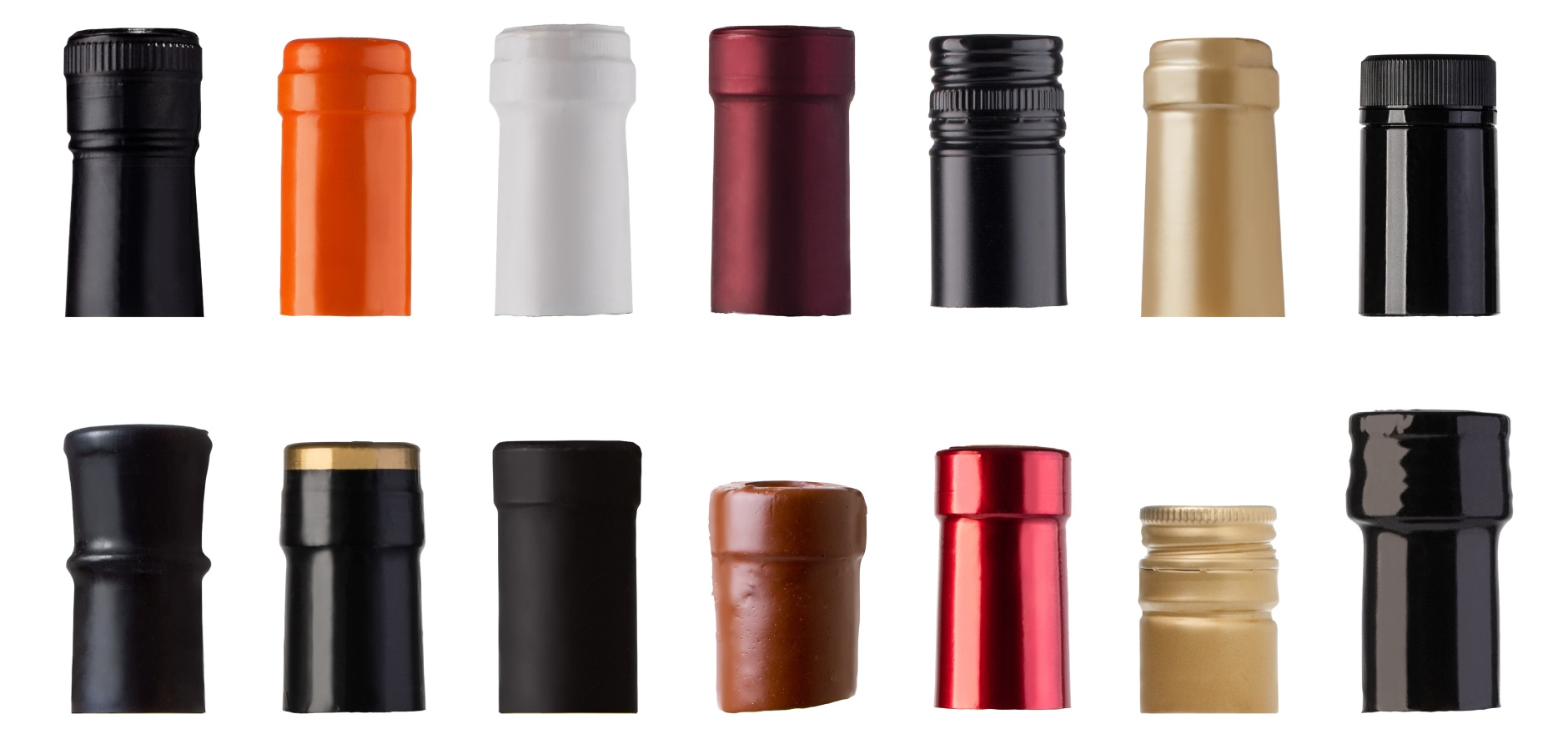
Wine bottle neck designs vary significantly, each paired with specific closures that suit the wine's type, storage requirements, and target market. Below is an overview of common wine bottle neck types, their compatible closures, advantages, and disadvantages.
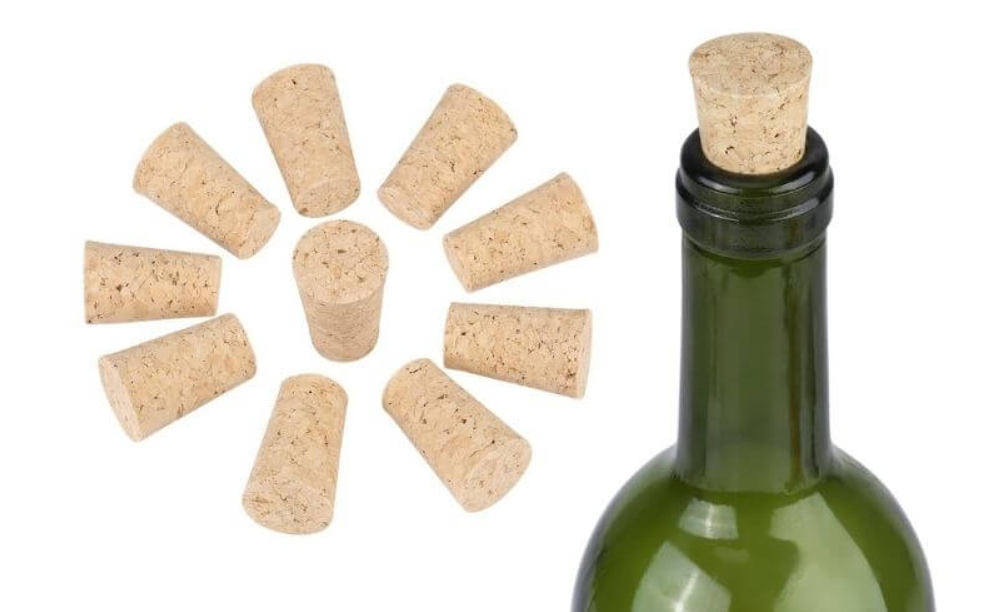
1. Standard Neck (Cork Finish)
Features: Narrow necks commonly used in traditional wine bottles, designed for cork closures.
Compatible Closures:
- Cork Stoppers: Natural cork, ideal for high-quality aged wines.
- Synthetic Corks: Made from plastic or composite materials for better sealing.
- Capsules: Often metal or plastic sleeves to secure corks.
Advantages:
- Cork stoppers allow slight oxygen exchange, enhancing aging and flavor complexity for premium wines.
- Synthetic corks prevent cork taint (TCA contamination) and offer strong sealing.
Disadvantages:
- Natural cork is humidity-sensitive and may dry out, compromising sealing.
- Synthetic corks are less suitable for long-term aging.
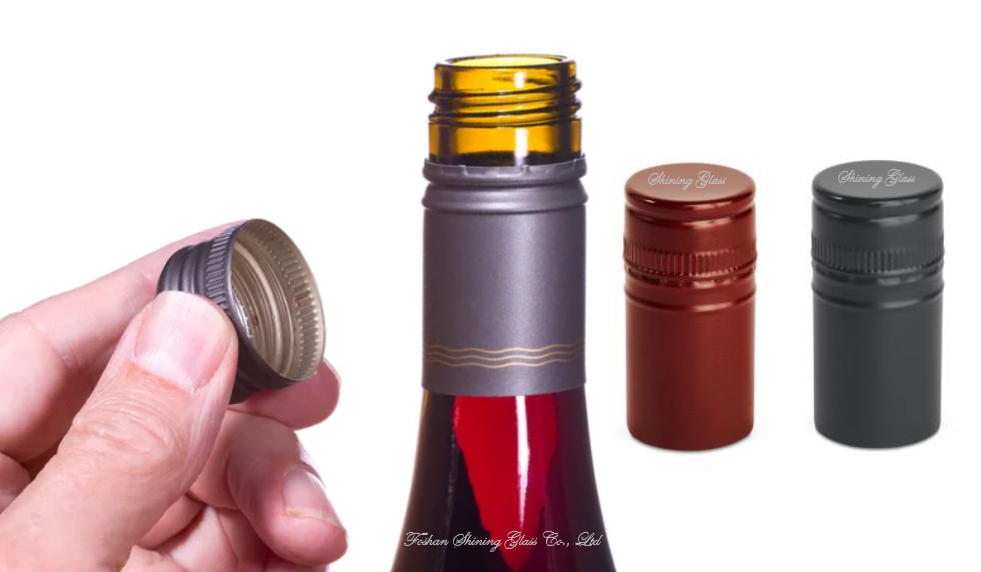
2. Screw Neck (Screw Finish)
Features: Threaded neck design, facilitating easy screw-cap closures, common in New World wines.
Compatible Closures:
- Screw Caps: Made of aluminum or alloy, offering airtight sealing and reusability.
Advantages:
- Provides near-total air impermeability, ideal for young, aromatic wines.
- Easy to open without a corkscrew.
Disadvantages:
- Not conducive to developing complex flavors in wines intended for long aging.
- Perceived by some as less premium than cork closures.
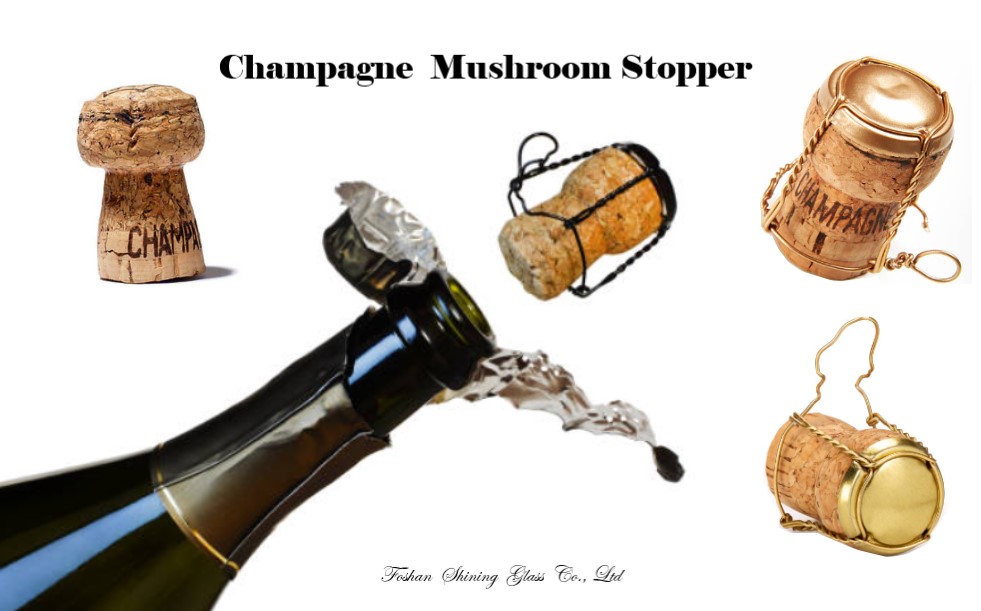
3. Champagne Neck (Mushroom Finish)
Features: Wider neck with an inner ridge, designed to withstand the high pressure of sparkling wines.
Compatible Closures:
- Mushroom Corks: Designed for sparkling wines, with enhanced sealing performance.
- Wire Cages (Muselets): Secure the cork under pressure.
Advantages:
- Excellent for maintaining carbonation and wine quality under high pressure.
Disadvantages:
- Safety concerns during opening due to pressure.
- Must be consumed shortly after opening.
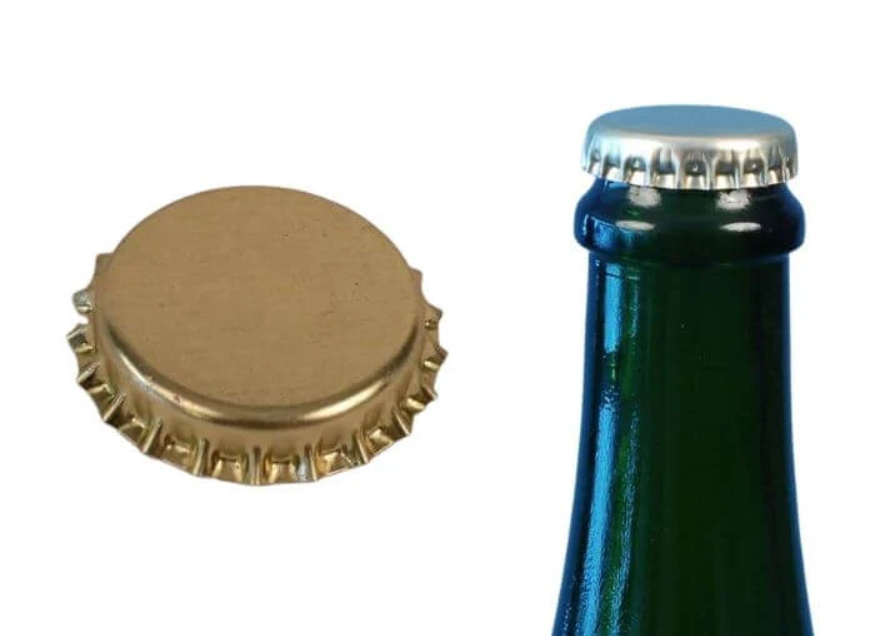
4. Crown Neck (Beer Neck)
Features: Similar to beer bottles, often used in budget sparkling wines or entry-level products.
Compatible Closures:
- Crown Caps: Low-cost, high-sealing closures pressed onto the neck.
Advantages:
- Airtight and cost-effective, suitable for mass production.
Disadvantages:
- Cannot be resealed after opening and may lack premium appeal.
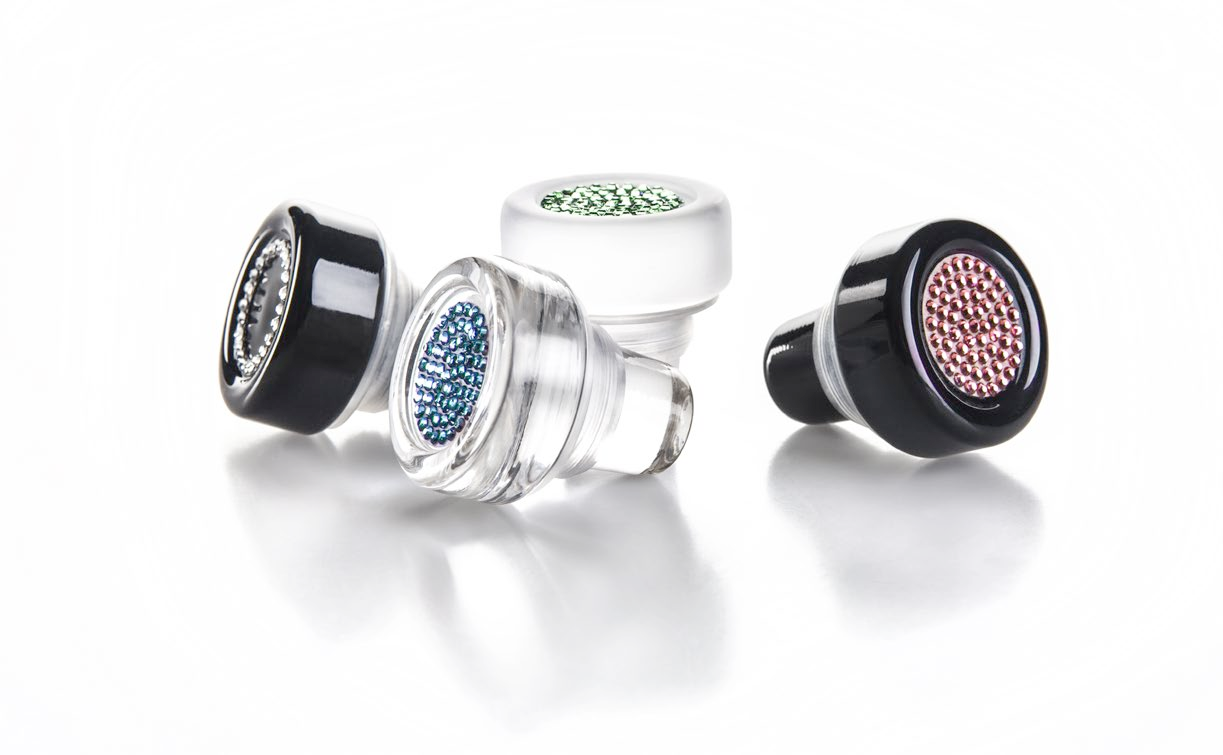
5. Glass Stopper Neck
Features: Special neck design paired with reusable glass stoppers for high-end or artistic wine bottles.
Compatible Closures:
- Glass Stoppers: Elegant and environmentally friendly.
- Plastic or Silicone Rings: Improve the seal.
Advantages:
- Reusable and aesthetically pleasing, offering a sophisticated look.
Disadvantages:
- High manufacturing costs and limited sealing strength for extended aging.
6. Gas-Tight Neck (Vinoseal)
Features: Designed for exceptional airtightness, often used for innovative wine products.
Compatible Closures:
- Gas-Tight Caps: Made of metal, plastic, or composite materials.
Advantages:
- Outstanding sealing for wines requiring long-term preservation.
Disadvantages:
- High technical and manufacturing costs, with limited consumer familiarity.
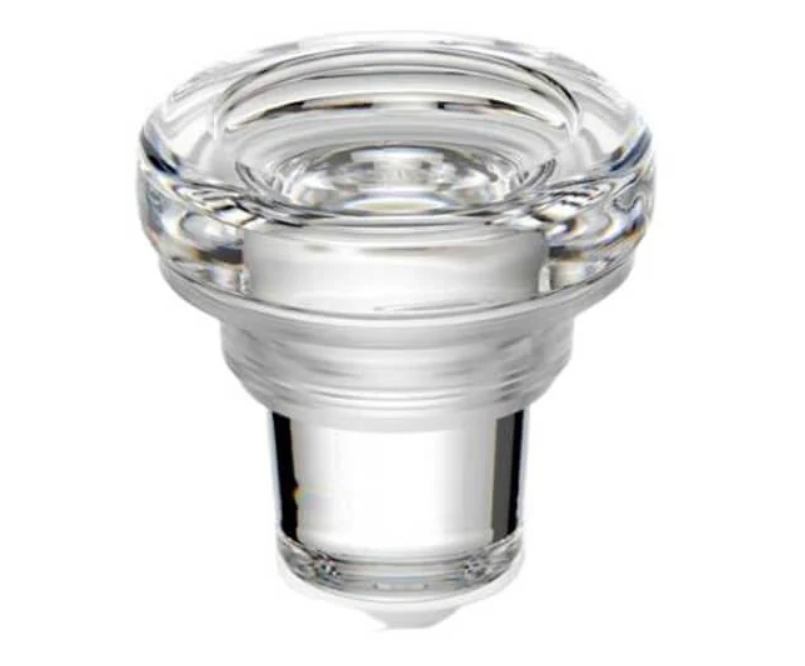
7. Wide Mouth Neck
Features: Broad necks for easy pouring, often used for dessert wines.
Compatible Closures:
- Plastic or Glass Stoppers: Easy to open and reseal.
Advantages:
- Flexible sealing options, convenient for filling and serving.
Disadvantages:
- Larger openings can lead to quicker oxidation.
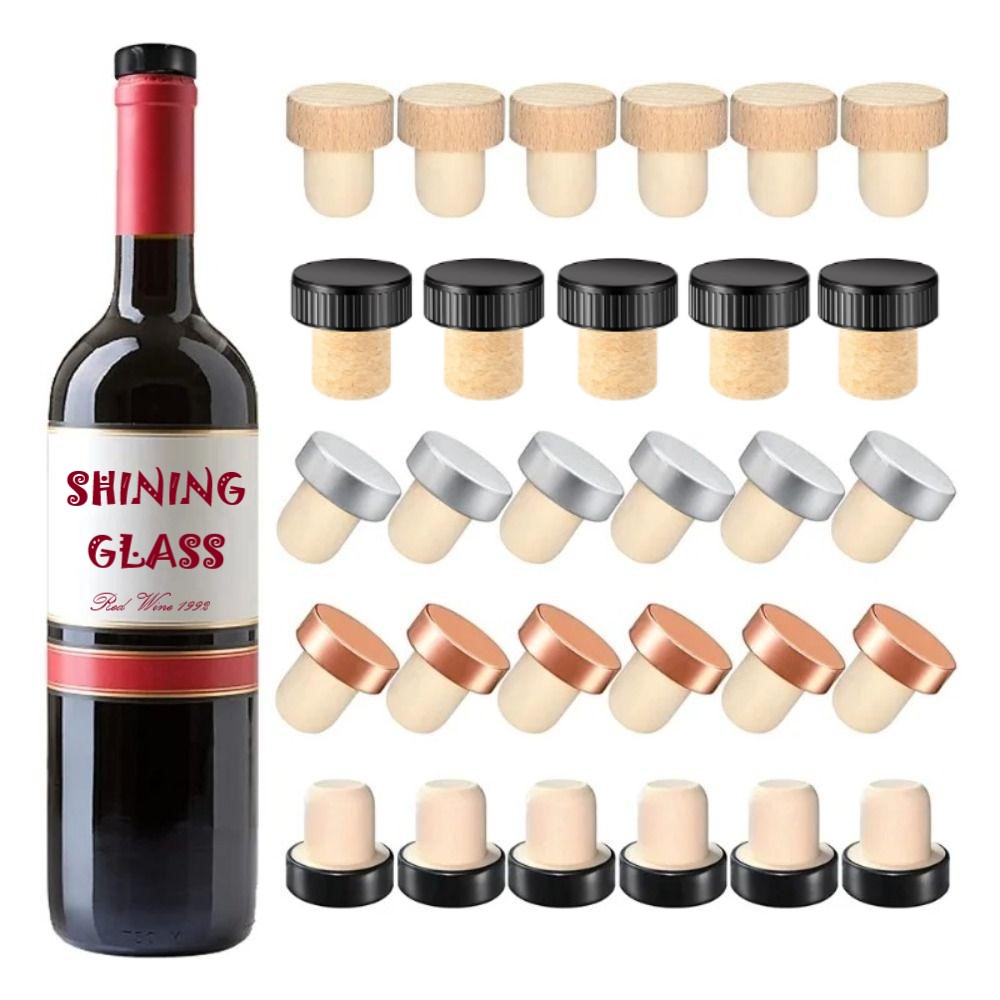
8. T-Stopper Neck
Features: Deep necks designed for reusable stoppers with a handle, typically used for fortified wines.
Compatible Closures:
- T-Shape Stoppers: Combining a handle with a cork or synthetic base.
Advantages:
- Elegant and easy to open, suitable for short-term storage.
Disadvantages:
- Moderate sealing, unsuitable for long-term aging.
Final Recommendations
Selecting the right wine bottle neck and closure depends on the wine type, storage requirements, and consumer preferences. For premium aged wines, cork-finished bottles are ideal, while screw caps suit young, aromatic wines. Champagne and sparkling wines demand high-pressure sealing with mushroom corks and wire cages, whereas glass stoppers or crown caps cater to specific aesthetic or budget needs.
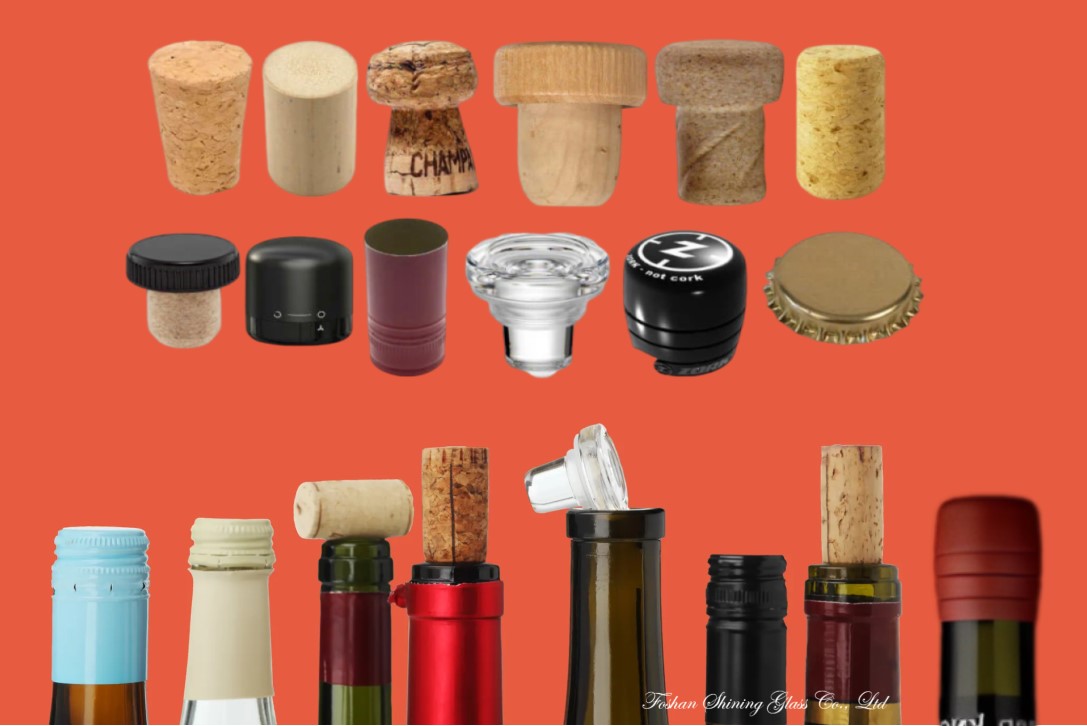
Partner with Foshan Shining Glass
Foshan Shining Glass offers a diverse range of wine bottles and closures, catering to various needs, from classic designs to innovative options. Whether you're producing fine aged wines or vibrant young vintages, we have the perfect solution to match your requirements.
Contact us today to explore our customizable bottle and closure options and elevate your brand’s presentation!
-
The Ultimate Showdown of Bird’s Nest Packaging: PT Cap vs. Tinplate Cap vs. Aluminum Cap
How to choose the perfect sealing cap for bird’s-nest packaging? Which comes out on top—PT-lined caps, tinplate caps, or aluminum screw caps? New to the industry and afraid of pitfalls? Seasoned pros still plagued by leaks? This article offers a deep dive into the performance, cost, and ideal applications of these three cap types, tackling the industry’s toughest challenges and helping you “crown” your product with the right cap—balancing quality and profit!
넶5 2025-04-28 -
From Rusty Returns to Flawless Seals: The Science Behind Food-Grade Capping
Are you constantly facing customer complaints about rusted lids and leakage after filling? Or dealing with packaging deformation and product returns post high-temperature sterilization? As experts in food-grade glass packaging container solutions, we fully understand the dual challenges of quality preservation and packaging compatibility during high-temperature sterilization.
넶11 2025-04-08 -
Why Embossing & Debossing Add Exceptional Commercial Value to Glass Bottles
In the packaging industry, first impressions determine whether consumers pick up your product. In an era where visual designs increasingly blend together, tactile experience has become a hidden weapon for brands to stand out. Embossing and debossing techniques create irreplaceable added value by giving glass packaging unique three-dimensional textures. At Shining Glass, we believe that packaging is not just a container—it’s a medium for brands to connect with users.
넶12 2025-03-21 -
Glass Bottle Selection Guide for Capsule and Pill Packaging
In the pharmaceutical and nutraceutical industries, packaging plays a critical role in ensuring product safety, efficacy, and shelf life. This guide provides a comprehensive overview of glass bottle selection for capsule and pill packaging, tailored for retailers, wholesalers, and distributors. Learn why glass is the preferred material, how to choose the right bottle size, and how Shining Glass can be your trusted partner in pharmaceutical packaging.
넶4 2025-03-11 -
The Genius of Texture: How Beverage Brands Use Orange Peel Patterns to Stand Out
To All Brand Owners, Designers, and Beverage Enthusiasts: Let's Talk About the Orange Peel Texture on Drink Bottles!
Yes, that bumpy, dimpled texture on your favorite drink bottle isn’t just a random design choice. If you thought it was merely decorative, think again! This unassuming feature is the “hexagonal warrior” of the beverage packaging world, a true hidden champion of industrial design that seamlessly blends functionality, aesthetics, and cost-efficiency.넶6 2025-02-28















